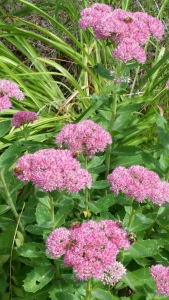
Herbstfreud. Sedum “Autumn Joy”
Cloudy equals cool, and I had energy.
Out I went. Took up the hose and showered the containers and drier spots on the flat corner lot. While I drenched the grapevine, a woman with shoulder-length grey hair strolled by. She stopped and chatted over the chain-link fence about the weather. How strangely cool it is, how quickly it can change in Colorado. Although, in her tidy black pants and pastel striped shirt, she wasn’t exactly familiar, it’s the sort of exchange I’m used to in a neighborhood of wide sidewalks and pedestrians. With a look of purpose and a contented smile, she strolled on.
By the time I made it down to the Sambucus, she was striding up the other side of the street. “Must be visiting one of the neighbors,” I thought as she stopped some 15 feet before the intersection and crossed toward me, again. She stepped up the curb with a little difficulty and seemed to get tangled as she walked through the tansy, coneflowers, and asters. Fearing she might stumble, I asked her if she needed a hand. “No,” she said, “if I can just make it through these weeds.”
Again, not so unusual. Natural equates wild equates weeds for lots of folks. Trying to sound firm and gentle, I said, “Those aren’t weeds. I actually work pretty hard to take care of that garden.” She stepped out onto the safety of the sidewalk. “Oh,” she said looking a little guilty. She regained her stride in her original direction.
As I finished up, she walked up the other side of the street, this time crossing the intersection. I thought, “Good for her, getting in such a nice walk.”
In I went, poked down something from the fridge for supper, and turned on the computer. Just as I opened an email, there was a knock at the door.
There she stood. Lost. Really lost.
“I was on my way home from work,” she said, “and my car stopped working. Then, I think it was my nephew who came and got it. Now, I don’t know where my car is.”
“Oh!” I said. “Would you like to come in?”
“I don’t want to bother you,” she said.
“Not at all,” I said. “Please, come in.”
“Thank you!”
“Here, sit wherever you’d like.” She perched on the love seat, her feet in tiny white walking shoes, snuggled next to each other. “Are you thirsty? May I get you a glass of water?”
She insisted she was fine.
I recapped her dilemma. “So, your car stopped working on your way home from work and your nephew came for it…”
“Or maybe it was my Dad…”
I notice she is empty-handed. “Someone you knew took your car with your purse and keys, and now you don’t know where it is.”
Though she looks not a day younger than 65, she nods like a school girl.
“Do you know where you are?”
“I think I’m somewhere between work and home.”
“Oh! Where do you live?”
She lights up. “Somewhere near downtown.”
“Do you know your address?”
“I think it’s 515.” Her air is at once satisfied and evasive. Five years ago, I had conversations like this with my dad. His dodging and deceits infuriated and frightened me. Suddenly, in the middle of my gut, I understood them more generously.
“Oh! Nice! Your house number is 515. And what street do you live on?”
“I. I don’t know.”
“Oh, I see!” I’m feeling tender and charmed. “Is there someone who might know where you live?”
She said her sister would know. But, if we called her, it would take a long time for her sister to get here. She tells me the name of the town where her sister lives. Had I heard of it? No, but if you tell me your sister’s name, maybe we can find her.
Over the next little while, I learn her name, her sister’s and brother-in-law’s names, her dad’s name. I try to locate them all via the internet on my phone. I find a number for her sister. It rings and rings. Every other line of inquiry leads us in circles. Her dad should be home from work by now, she’s certain. He always comes and gets her. He works at the hardware store. Did I know which one?
She worries, over and over, that she’s interrupting my supper. Are you hungry, I ask? Oh, no. My mom always has bowls of snacks set out for us when I get home from school.
I try her sister’s number again.
“What do we do now?” she asks.
“I know. How about if I call the police and see if anyone is looking for you?”
“OK! Maybe they’ll know where my dad is.”
“Or your car!”
“Right!”
So, I dial 911. All the while I describe her to the operator, she looks at those tiny white shoes, her hands folded in her lap. “Is she cooperative?” they ask. “Call, again, immediately, if she leaves.”
My new friend is going nowhere, if I have anything to say about it.
“What do we do now?” she asks.
“We’re going to wait for someone to come and take you home.”
“I don’t want to interrupt your supper.”
“Oh!” I laugh. “I’ve already eaten. Are you sure you’re not hungry?”
“No, no. I’m fine. My mom always has bowls of things out for me when I get home from school. I like your house. This is a nice house.”
“Thank you! How do you feel?”
“Oh, you know, it’s a little hard when you can’t remember things.”
“Ah. You’re a little anxious?”
“No, no, no. I’m comfortable here. This is a nice house.”
“I’m so glad.”
“But I’m taking up all your time. I should go.”
“Not at all! I’m enjoying your company.”
We talk in loops and tendrils until a young officer comes to the door. “And your name is?”
“Chris.”
“Chris, this is my friend, Karen. Karen, this is Chris. He’s come to give you a ride home.”
“Do you know where I live?” Her soft voice is full of wonder and relief. She stands as he tells her the address.
The evening is just fading as they walk out the gate.
“Thank you for coming!”
Absorbed in her conversation with Chris, she doesn’t turn.
I wave, anyway.
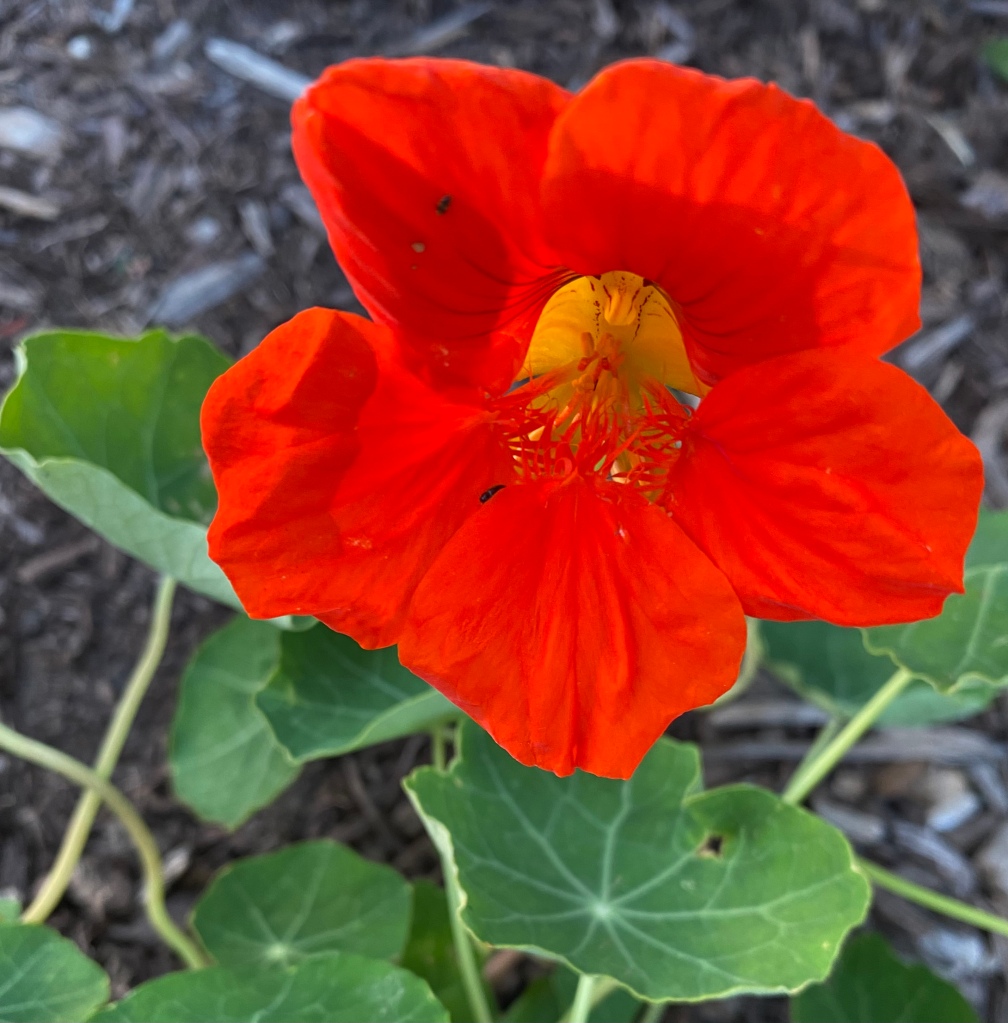


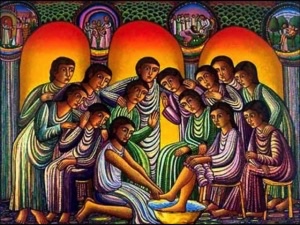
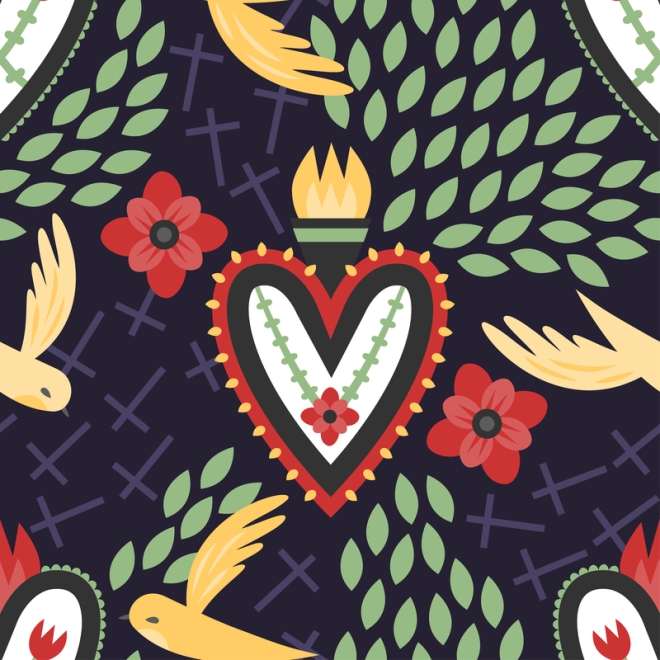

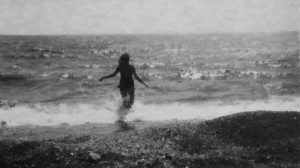 For Barb L.
For Barb L.
